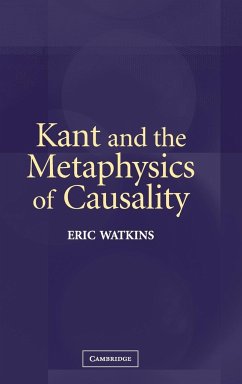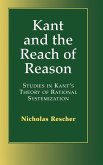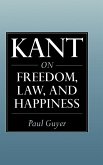Short description/annotation
A book about Kant's views on causality as understood in their proper historical context.
Main description
This is a book about Kant's views on causality as understood in their proper historical context. Specifically, Eric Watkins argues that a grasp of Leibnizian and anti-Leibnizian thought in eighteenth-century Germany helps one to see how the critical Kant argued for causal principles that have both metaphysical and epistemological elements. On this reading Kant's model of causality does not consist of events, but rather of substances endowed with causal powers that are exercised according to their natures and circumstances. This innovative conception of Kant's view of causality casts a light on Kant's philosophical beliefs in general, such as his account of temporality, his explanation of the reconciliation of freedom and determinism, and his response to the skeptical arguments of Hume.
Table of contents:
Introduction; Part I. Causality in Context: 1. Pre-established harmony versus physical influx; 2. Kant's pre-critical theory of causality; Part II. Causality in the Critical Period: 3. Kant's second and third analogies of experience; 4. Kant's model of causality; Part III. Causality and Consequences: 5. The metaphysics of freedom; 6. Kant's reply to Hume: historical and contemporary considerations.
Hinweis: Dieser Artikel kann nur an eine deutsche Lieferadresse ausgeliefert werden.
A book about Kant's views on causality as understood in their proper historical context.
Main description
This is a book about Kant's views on causality as understood in their proper historical context. Specifically, Eric Watkins argues that a grasp of Leibnizian and anti-Leibnizian thought in eighteenth-century Germany helps one to see how the critical Kant argued for causal principles that have both metaphysical and epistemological elements. On this reading Kant's model of causality does not consist of events, but rather of substances endowed with causal powers that are exercised according to their natures and circumstances. This innovative conception of Kant's view of causality casts a light on Kant's philosophical beliefs in general, such as his account of temporality, his explanation of the reconciliation of freedom and determinism, and his response to the skeptical arguments of Hume.
Table of contents:
Introduction; Part I. Causality in Context: 1. Pre-established harmony versus physical influx; 2. Kant's pre-critical theory of causality; Part II. Causality in the Critical Period: 3. Kant's second and third analogies of experience; 4. Kant's model of causality; Part III. Causality and Consequences: 5. The metaphysics of freedom; 6. Kant's reply to Hume: historical and contemporary considerations.
Hinweis: Dieser Artikel kann nur an eine deutsche Lieferadresse ausgeliefert werden.








